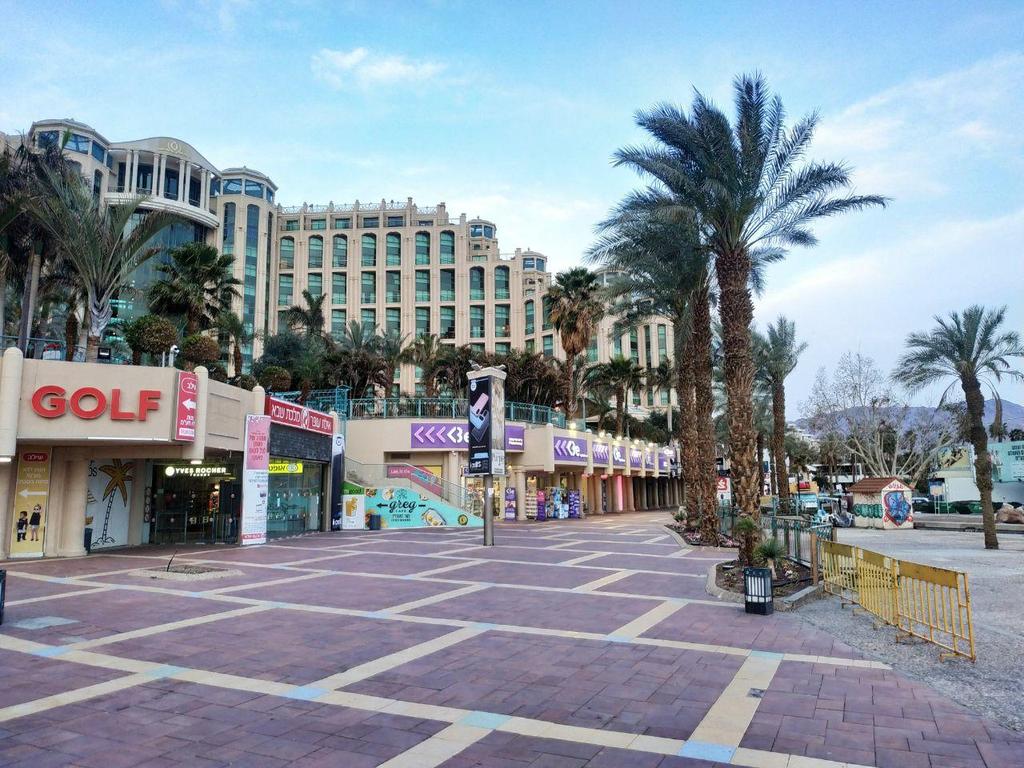Israel's southernmost city of Eilat has been the hardest hit by the wave of unemployment triggered by the coronavirus outbreak, with 70% of its workforce currently without a job, a new report shows.
According to the report from the Israel Employment Service, the workforce in the coastal city is overwhelmingly employed in the tourism industry - in hotels, restaurants and cafes and other leisure outlets. And as these businesses closed, workers found themselves fired or forced to take unpaid leave.
Aside from Eilat, the damage caused to the Israeli economy is being most felt among the ultra-Orthodox and Arab communities, where unemployment keeps rising at an alarming rate.
The ultra-Orthodox settlement of Beitar-Illit has 52% unemployment, likely stemming from the fact many of the residents work in the sector's now shuttered education system.
The Arab city of Nazareth follows with a 47% unemployment rate, primarily due to the major blow to the city's tourism industry as well as private education.
Next highest rate is in the Haredi settlement of Modi’in Illit, with 35% unemployment. This is followed by Bnei Brak, where 34% of the workforce is jobless, the Arab cities of Rahat and Umm al-Fahm, both with 33% unemployment, and the increasingly ultra-Orthodox city of Beit Shemesh, with 29% unemployment.
3 View gallery


IDF soldiers distribute food to Bnei Brak residents as coronavirus sweeps through the city
(Photo: Moti Kimchi)
All of these communities have higher rates of unemployment than the national average, which at the end of March stood at 23.4%. In both Tel Aviv and Haifa, the second and third largest cities after Jerusalem, unemployment has reached 21.5%
The Employment Service data echoes statistics presented by the National Insurance Institute, which found that unemployment is being most felt among the weakest sectors of the population.
According to the NII, the average stipends paid to the newly unemployed is 28% lower than the average national wage.
An alarming phenomenon is the percentage of unemployed who are laid-off workers. This was roughly 5% at the beginning of the crisis but has almost doubled to 9% as of March 20.
The number of job seekers in the Employment Service increased from 162,000 in February, to 973,000 by the end of March - up from 3.9% of the workforce to 23.4%.
The Employment Service quoted experts at the OECD as saying that, "it will take a few months for the economy to get back to a routine, and even then it is unclear what this routine will look like."
The head of the Employment Service, Rami Graur said: "Whether the return to routine is slow and measured or fast, comprehensive policies must be adopted to bring as many Israelis who were on unpaid leave or who were dismissed back into the workforce.”
He added: "The Employment Service is preparing to implement a comprehensive plan for the massive reintegration of Israelis into the job market by improving skills and professional training."
He also noted that, "there are branches that will require special attention because of the dramatic damage they have suffered, like tourism.” He cited Eilat as an example of the damaged tourist industry.



